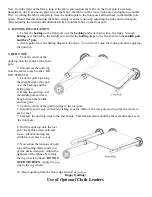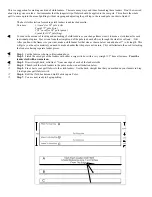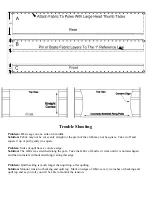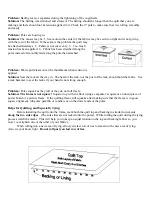
This is a suggestion for making one kind of cloth leaders. There are many ways and ideas for making these leaders. Don’t be worried
about trying your own idea. Just remember that the longest strip of fabric should be applied to the rear pole. This allows the whole
quilt to come up into the area of quilting without stopping and adjusting the quilt top to the second pole in order to finish it.
The best cloth selection for making cloth leaders is unbleached muslin.
Purchase:
1 ½ yards for 58" pole (crib)
2 yards 72" pole (twin)
2 2/3" yards for 94" pole (queen)
3 yards for 108" pole (king)
<
To reduce the amount of tacking and un-tacking of cloth leaders as you change frame sizes is to make a cloth leader for each
individual pole piece. Have it run from the straight end of the pole to about half-way through the slant (or cut) end. –OR–
After you know the frame size you want, make a cloth leader for that size as shown below and add about 7" to its length. This
will give you the extra material you need to make a header that the pole can slide into. This will eliminate the need for tacking
the leader or having separate leader pieces.
<
Step 1.
Cut the fabric as shown in illustration above.
<
Step 2
. Finish the cut edges of the leaders with either a serge stitch or with a very straight 1/2" hem allowance.
Press the
leader cloth with a warm iron.
<
Step 3.
Draw straight, dark, solid line 1" from one edge of each of the leader cloths.
<
Step 4
. Thumb tack the cloth leaders to the poles as shown on illustration below.
<
Step 5
. Pin or baste your quilt fabrics to the cloth leaders. Use the dark, straight line that you marked on your leaders in Step
2 to align your quilt fabrics with.
<
Step 6
. Roll the Cloth Leaders and Quilt Fabrics up on Poles.
<
Step 7.
You are now ready to begin quilting.



































